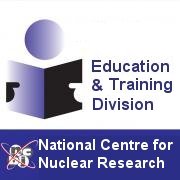Nuclear physics
Scientific discoveries result in many, very often unexpected, benefits for the mankind. Although the contemporary nuclear physics deals with numerous interesting topics, there are still many opened questions. The best way to discover the laws of Nature is to perform extensive theoretical and experimental studies at extreme conditions. Such investigations are severe tests of theoretical models, which are the formulations of the present knowledge or the working hypothesis about the subject. Researchers investigate exotic nuclei far from stability, as well as nuclei with high angular momenta, large deformations, and high temperatures.
One of the best examples of the physics at the extremes is our theoretical investigation of superheavy elements with large both proton and neutron numbers. Another important subject is the dynamics of nucleus-nucleus collisions at energies ranging from very low, important for the astrophysical processes, through relativistic, providing information on thermodynamics of nuclear matter, to ultrarelativistic, which might lead to new forms of the matter, such as quark-gluon plasma. Also, the structure and interactions of various reaction products obtained in low-energy heavy-ion collisions and atomic effects in very strong electromagnetic fields which occur in heavy-ion collisions are studied. Furthermore, theory of fusion is being developed aiming at the discovery of new isotopes of known elements, as well as superheavy elements with new properties.
The research is conducted in collaboration with leading laboratories throughout the world.












